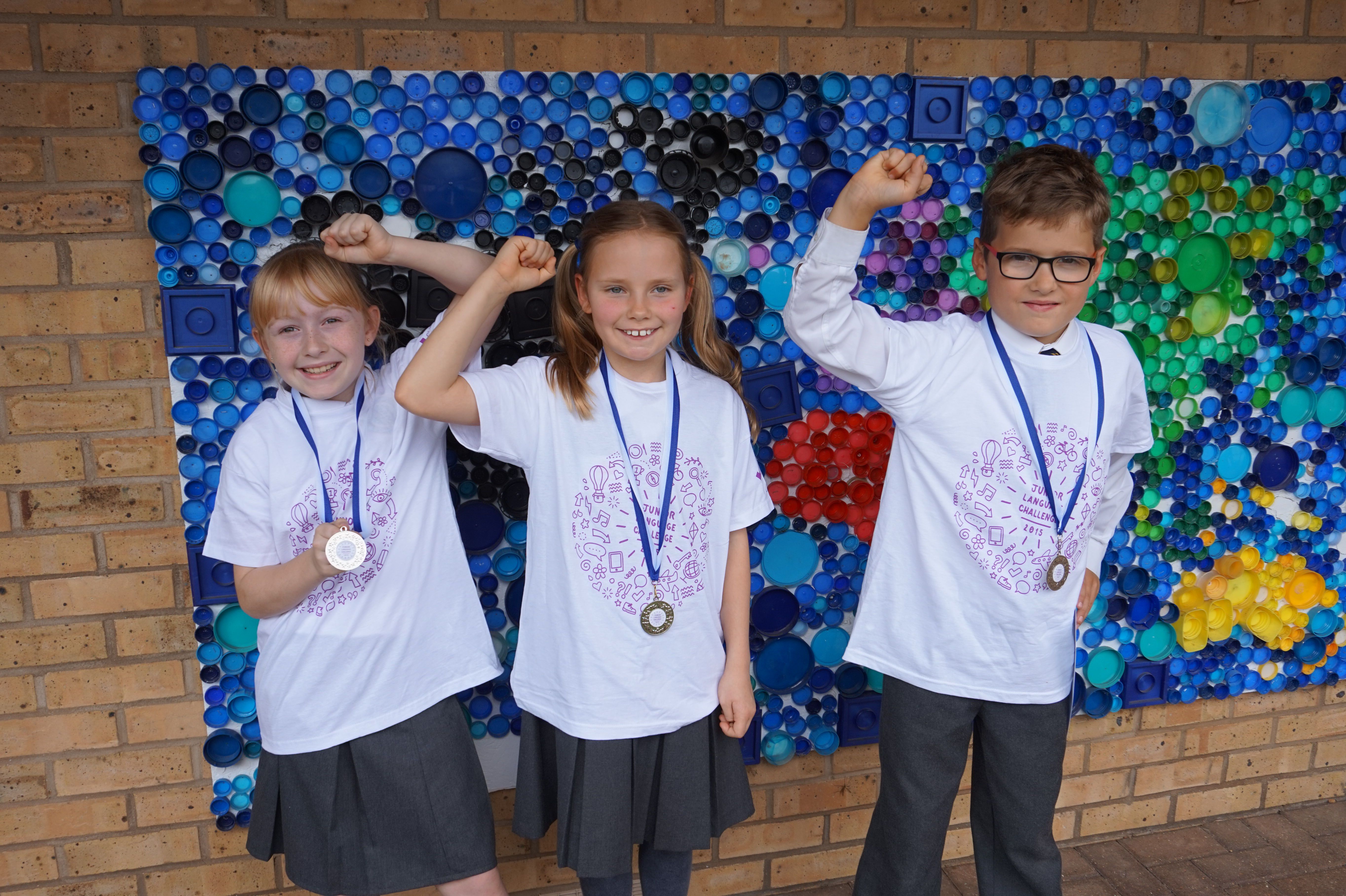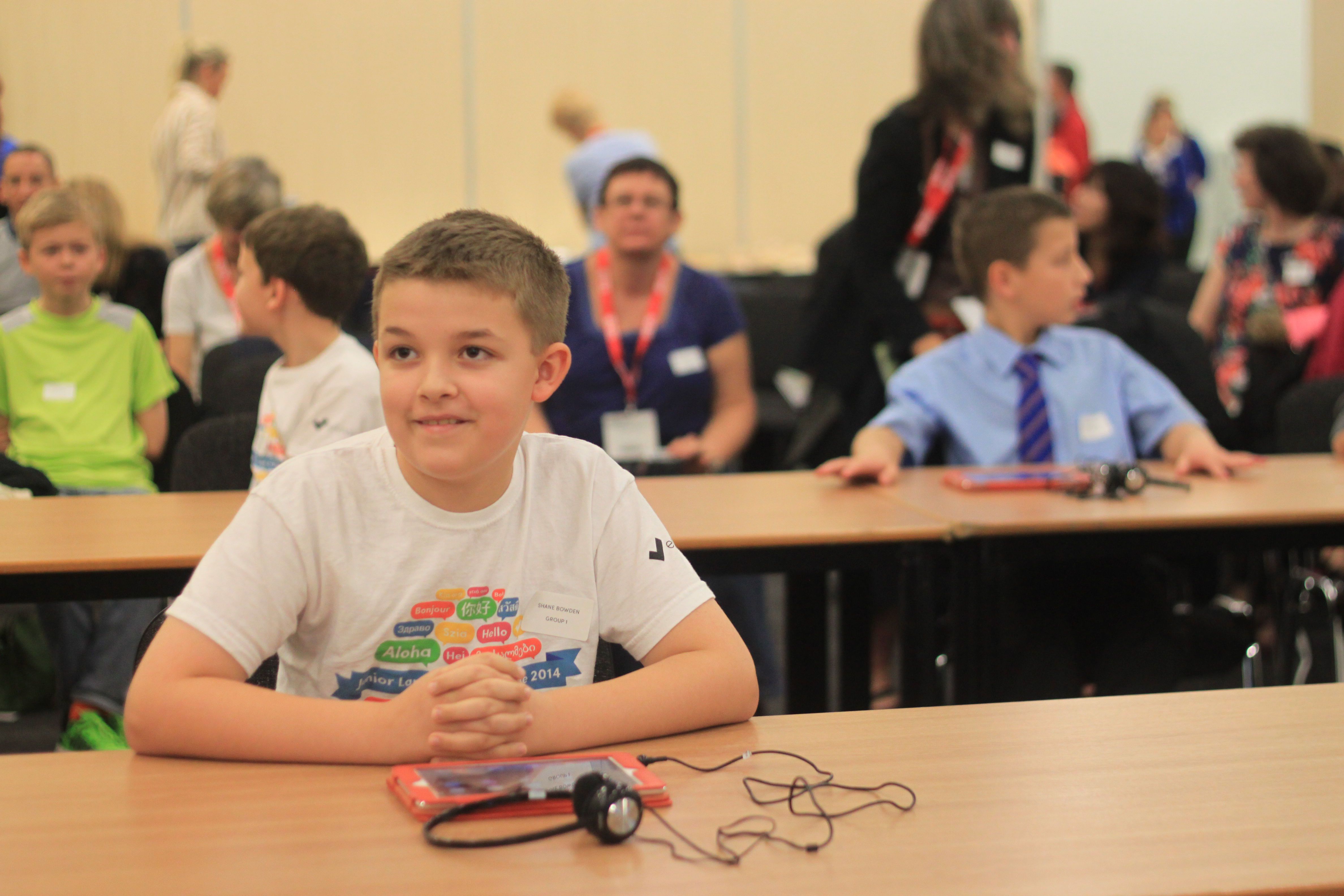5 ways to be happy like the Bhutanese
Recently, we were recording the Bhutanese language of Dzongkha for uTalk (now available!) and realised we knew hardly anything about the Himalayan kingdom. The Duke and Duchess of Cambridge are visiting as part of their Royal visit to India and Bhutan; so we thought we would do a bit of reading – and now we want to move there.
Gross National Happiness is an actual thing in Bhutan! Rather than measure the GDP (gross domestic product) the Bhutanese measure how happy their population is. In 2015 it found that 91.2% of the population would describe themselves as happy – whether ‘narrowly, extensively or deeply happy’; they classed themselves as happy. How lovely is that? But how do they do it? Here are some tips on how to make your life a little bit happier.
1. Turn off your computer, phone, Internet connection
In Bhutan the Internet didn’t arrive until 1999, so why not try to go Internet free. I know this is shocking – a lot of us are glued to our smartphones. But, why not try turning it off? Even if just for an hour every day, take a break from the cyber world and do something else instead. If you tend to use your smart phone before bed try replacing it with a book. A lamp doesn’t emit a stimulating light like your smartphone, which keeps you awake for longer; let’s be honest who doesn’t love extra sleep.
2. Listen to some music
Apparently Bhutan’s King, Jigme Khesar Namgyel Wangchuck is a huge fan of The King of Rock, Elvis. So put on your blue suede shoes and get dancing, singing, or just listen to some music. Spotify have some perfect mood boosting playlists and motivational songs.
3. Have a cuppa
A cup of tea, or a warm drink – if you’re not a tea lover, this can help to relax you. In Bhutan they have their own version of ‘tea’ called suja, described as thick and creamy, made of salted yak butter. Instead of serving it with a rich tea biscuit, it comes with dry popped rice.
4. Take up yoga/meditation
Find your zen! The Bhutanese allow for daily meditation sessions in school, and play traditional music to sooth students instead of a school bell. Doing yoga or meditating is the perfect way to zone out after a stressful day. There’s now such a thing as yoga with bunnies or even goats in some places.
5. Go for a bike ride
Jigme Khesar Namgyel Wangchuck’s dad (the previous king of Bhutan) used to ride up and down the mountains of Bhutan. Some of the locals in Bhutan are sure they have seen him cycling around the town in his spare time. Going for a bike ride is a great way to get some exercise and it releases feel-good endorphins. Apparently it also helps you to sleep more deeply and will help ease any guilt from snacking.
What are your top tips to live happy?
Why children should learn a second language
The Scottish Government has committed to every child learning a second language at the age of 5. Alongside this, they’ll learn an additional language in P5, which means children will know 3 languages by the time they leave school. It’s called the 1+2 policy and we think it’s a great pledge, as there are so many reasons why children should learn another language.
Increase their skills
Earlier this week an article came out stating that ‘bilingual babies are smarter’. Growing up learning or hearing a second language helps to increase their learning capabilities including problem solving and memory. This means not only do children benefit from knowing a second language; it also helps them improve across all other subjects that they’re learning.
Future needs
This may seem like extreme forward planning, but as the world continues to internationalise, employers are looking to their potential employees for language skills. Business is conducted worldwide and the need to understand and communicate with other cultures is massive. Having the ability to learn a language at a young age is an excellent skill to have.
Enthusiasm
Secondary schools in the UK teach a foreign language in years 7 to 9, with it being optional for students to take a language at GCSE. Starting languages in primary schools could create the enthusiasm needed to help with the uptake of GCSE and A-level languages. It can help to show students that languages aren’t necessarily a risky option at GCSE/A-level, instead they are fun and there are ways that you can learn a language and do well with it!
Primary schools that have been a part of the Junior Language Challenge have found children love to learn languages. Those that get to the final of the challenge have had the chance to learn three new languages; many of them have chosen to enter again the year after too!
Multi cultural
There are such a large variety of cultures in the UK, in one primary school there are 20 different languages spoken. Not one of these speak English as a first language, so equipping children with the skills to learn a language will make it easier for them to pick up English and communicate with each other.
European Countries
In 2012 the European Commission report found only 9% of English students were reaching ‘independent learner’ level when it came to languages. This is tiny compared to Sweden’s 82% level; the UK is actually joint bottom when it comes to learning foreign languages. In Luxembourg children are offered the chance to learn 3 languages during their time at school. Clearly learning a language is an area the UK needs to invest in more – and Scotland are leading the way!
Beginner’s guide to Romanian
The Junior Language Challenge is a national competition for children aged 10 and under across the UK. One of the goals of the competition is to give young learners the chance to discover exciting new languages, and this year we’ve chosen Romanian as the first language.
But how much do you know about this European language? Here’s Ioana’s introduction to her mother tongue…
Some other fun facts about Romanian
- The Romanian language is 1,700 years old and is the only Romance language spoken in Eastern Europe. That’s why you’ll be surprised how many similarities it has with French, Spanish, Italian and Portuguese. However, it also retains a number of features of old Latin and also contains many words taken from the surrounding Slavic languages, as well as from German, Greek and Turkish.
- The name “Romania” comes from the Latin word “Romanus” which means “citizen of the Roman Empire.”
- Something that might come in handy is that Romanian is a phonetic language, so words are pronounced as they are spelled. Yay!
- A foreigner trying to learn or speak Romanian can expect positive reactions from native speakers. Most Romanian will certainly appreciate the fact that you are making an effort to speak their language.
- Romanians tend to be very good at foreign languages, they start learning as early as 6 years old in school either English, French or German and they add a second language at the age of 11. The majority of young people speak very good English and some of them even another one or 2 languages.
- Romanians love meeting new people and making friends; they are also renowned for their hospitality, so if you speak Romanian you have a pretty good chance of having a blast if you’re visiting this country.
- And speaking of travelling, Romania has amazing landscapes. In fact, Romania’s Carpathian Mountains are home to the largest undisturbed forests in Europe.
- Don’t deny yourself the ease of ordering delicious Romanian food that comes in generous portions, and you’re guaranteed to remember a trip to Romania as one of the best you’ve ever had.
La revedere și mult succes (goodbye and good luck)
If you’re a parent or teacher of children aged 10 and under in the UK, visit juniorlanguagechallenge.com to find out more about our annual competition, which is now open! Entry costs just £5, which is all donated to our fantastic charity, onebillion.
EuroTalk Egg-Smashing Championship 2016 – Who Will Win?
It’s Easter, which for some of us means chocolate eggs or hot cross buns, but here at EuroTalk we’re celebrating with another tradition: egg tapping. It’s very simple, so you can do it from home:
1) Boil a load of eggs, one for each participant.
2) Decorate the eggs- This can be done in a number of ways, the most popular of which may be to boil them with onion skins to make a reddish finish. If you’re feeling artistic, press some leaves against the unboiled eggs and secure them with an old stocking, then boil them to leave the impression of the leaf. You can also paint the egg after boiling. Here at EuroTalk, we enjoy personifying our eggs so we put little warrior faces on them (with some of them even going to the effort of putting their war-paint on!)
3) Arrange yourselves into pairs, and in each pair tap first the tops of your eggs together, then the bottoms. If an egg cracks, it loses the round, and you have to eat it. The winner is the one whose egg survives the longest!
The EuroTalk Championships:
Round 1: Alex versus Ioana: After a small amount of cracking on the top of Alex’s egg, Ioana really smashed her advantage home by shattering the bottom of her opponent’s egg: a clear winner.
Round 2: Safia versus Nat: The initial tap only drew a tiny crack from Safia’s egg, but the second tap left the same egg in shreds whilst Nat’s was still uninjured.
The Final: Ioana versus Nat:
Nat’s egg suffered a major injury in the first round, but a strong grip during the second tap left Ioana’s egg struggling in the ring, and Nat’s egg was crowned the winner of this year’s 2016 Egg Smashing Championships!
We celebrated by eating all the egg participants, winners and losers, to prove that no foul-play (concrete fillings etc.) had been perpetrated in the preparing of the eggs.
Tune in next year to see how the eggs perform!







